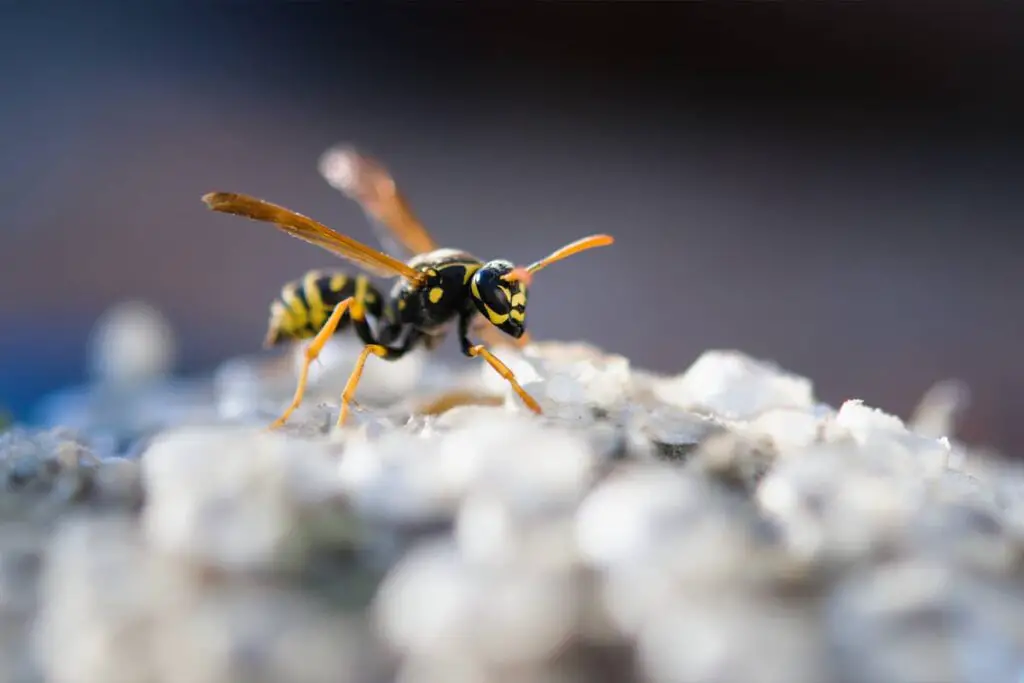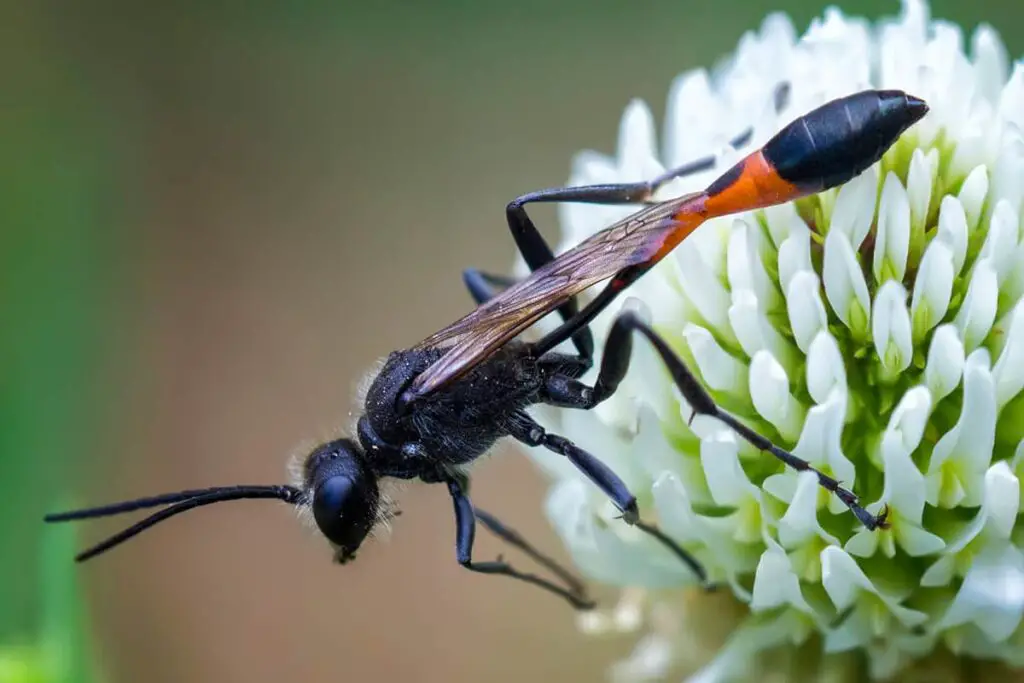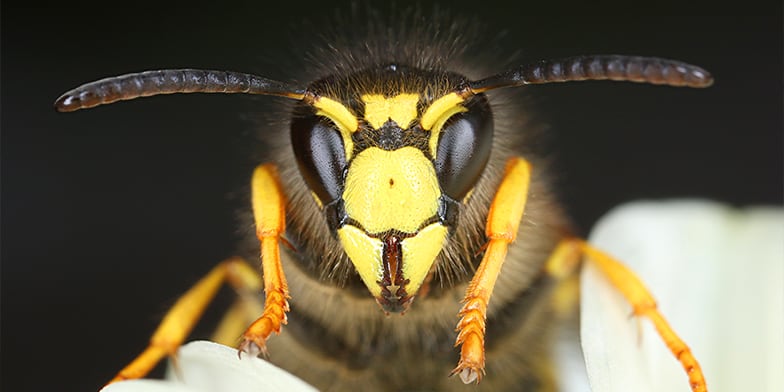
As fall approaches, wasps will begin to go into hibernation. This is your opportunity to take preventative measures against them before they emerge again in the spring. After all, they’re going to remember that time you tried to take out their nest with a baseball bat, right? You don’t want them recognizing your face, and coming back with full fury for round two. Would your old adversaries actually remember you, and come back for revenge?
Social wasps are not able to recall individuals, and will not come back for revenge. Instead, they will use pheromones to mark potential threats. This helps the wasps locate and attack their target, even at a distance. Without this pheromone, the wasps won’t remember you, and they won’t seek retribution.
If there is a wasp nest close to your home, whether or not you’re trying to co-exist peacefully with these insects or planning to remove them, it pays to know how they will treat you on your initial and future approaches. Let’s have a look at some common questions you might have.
Do Wasps Attack Because They’re Spiteful?
It’s a common trope that wasps will attack you for no reason. Maybe you’re someone who was just minding your own business sitting in the sun when all of a sudden a wasp hovers and buzzes right in your face like they’re personally offended by your existence.
This isn’t the case!
In the wasp social hierarchy, there are two main castes, or hereditary classes: reproducer and worker. The worker caste, which is actually entirely made of unmated females, focuses their energy on feeding all the larvae, guarding the nest, hunting, and doing the general housekeeping for the colony.
When these workers go out to look for food, if their nest is near you, it isn’t surprising that they might hunt in your vicinity. Whether you kill the wasp quickly or swat at it too much, the worker you’re attacking will send out an alarm pheromone.
For those chemistry fans among us, according to the International Union of Pure and Applied Chemistry, these alarm pheromones are typically made up of 2-pentanol, 1-methyl butyl-3-methyl butanoate, and 3-methyl-1-butanol compounds.
When a wasp feels threatened by you, you might not be sure whether or not she’s triggered the alarm, but by the time you’ve killed the wasp it’s already too late. The worker you just attacked didn’t just disperse the pheromone in every direction, she marked you with it, which is why the wasps that begin to chase and surround you are so intent on you.
The natural consequence of this is that the little insects coming in at you from every direction are not attacking out of spite. In their little minds, they are defending themselves from something many times their size – and they just want you gone.
How close is too close?
If wasps are starting to hover or fly around you rather aggressively, you’re probably dangerously close to their nest. This can be a real problem if the queen decided the rafters of your roof were the perfect place to settle down.
Wasp nests aren’t so bad when they’re far enough away from your home, but too close could mean getting stung every time you walked out your door, and more serious threats to children and pets.
So how can you tell if wasps have built their nest too close?
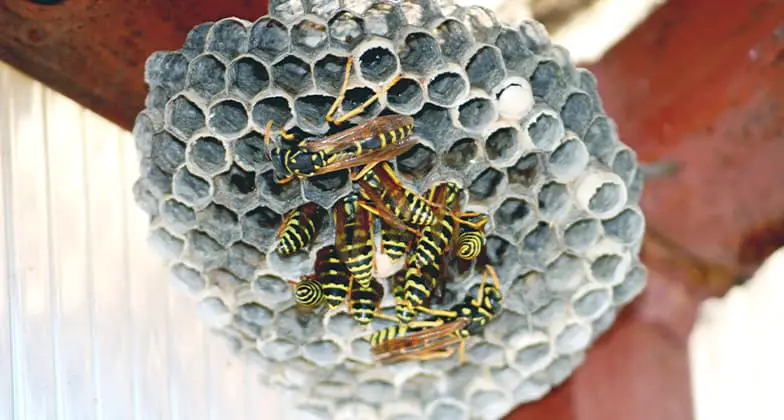
Try to look for small, white lines along wood surfaces, like a fence. When a queen wasp has found a suitable place to build her nest, she and the workers she has with her will start stripping the wood as an important component for the construction of their new home.
If you’re noticing wasps every so often, and you spot those tell-tale white lines on your woodshed, it’s time to scout around and see if you can find the nest. Safely, of course.
Once you’ve spotted the nest you should call pest control specialists to take the nest down. They are well-suited for that kind of challenge because they have the protective gear and the right tools.
If you’re wondering if you can sneak in at night and quickly remove the nest, you should know that this is very risky. As we’ve previously explored on Bug Domain, it’s at dusk that all of the wasps will return to their nest. The wasps will be dormant, but not sleeping (they’re taking the time to take care of their young), and so they will be alert and they will definitely see you coming.
If you’re determined to take out the nest yourself, spraying the nest with a mixture of soapy water from a distance is a proven method. Just be aware that you’ll be in for a fight, and to wear as much protective clothing as you can. It’s very likely not worth the risks, and I highly recommend calling in the professionals.
Will the Wasps Come Back?
You’ve gotten rid of the nest, and you can once again walk around your home without being harassed by wasps. That’s that, right?
Typically, yes. Once you’ve taken out the nest, the wasps won’t come back. There are three ways social wasps (which are the ones that have nests to alert) will leave their nest, never (or hardly ever) to return:
- If you render the nest useless
- If you have the nest removed/destroyed
- If you just wait until winter
When you use the soapy water mix, the wasps will sense that the location is no longer safe because many are dying, and fly the coop. If the nest has been taken down or destroyed, pest control specialists have noted that wasps will only hang around the old nest until they understand that their nest is gone or compromised.
Finally, if you choose to wait until winter, the wasps will naturally abandon the old nest and lay dormant until spring. This is the riskier option as sometimes the old queen can survive the winter and reuse the old nest. However, it’s most common that the wasps will go somewhere else with a new queen.
If They Do Come Back, Do Wasps Remember You?
Once the wasps come out of their hibernation, they won’t remember you. The primary concern of the wasps is the survival of the nest, so the workers will go back to their chores. Without the alerting pheromone that warns the colony that you are a threat, everything goes back to normal.
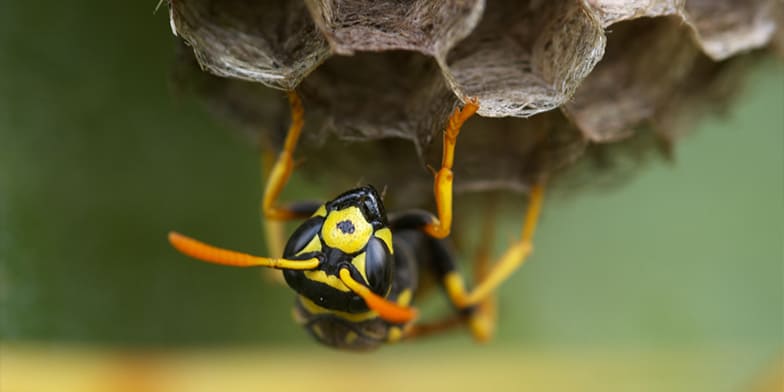
How to Keep Wasps From Returning After Removing the Nest
If you want to try to make certain wasps don’t find your house attractive again, here are four things you can try to dissuade them.
- Using insecticide on the wooden surfaces around your home
- Making your own wasp traps
- Storing your fruit safely
- Calling the exterminator ahead of time
During the early spring, when the wasps are waking up and getting busy, you can keep your property off their housing list by spraying insecticide around your wooden porches, fences, and eaves. Wasps rely on wood to build their nests, and they find it because it releases a certain smell that they can recognize. Insecticides often contain a molecule called cypermethrin that disguises the scent.
Calling an exterminator in early spring or the end of winter to put down preventative sprays around your house is useful for the same reason.
Similar to wood, wasps are attracted to the sweet scents of fruit and meat. Try to keep your sweet food products in the refrigerator instead of counters or tables. If you intend on eating outside, understand that you may be in wasp territory, and they may come by to check things out. There’s nothing to be afraid of if a wasp or two smells your food and comes for a good look. They’re more concerned about bringing your leftovers to their colony than they are about attacking you.
Finally, you can use fruit to your advantage and make some traps on outside furniture or near windows and doors. Put some sliced fruit, jam, or some beer and water into a can or bottle to create an irresistibly sweet aroma that a wasp cannot resist. Now, cut a small hole into the lid so that the wasps can get in, but can’t figure out how to get out.
Just remember when you’re packing your trap away, it may contain some disorientated and potentially angry wasps. Dispose with care!
Conclusion
Wasps are not physically capable of feeling spite, and they don’t feel any need to come back for revenge. They only attack in order to eliminate threats to their nest, and use pheromones to mark you as such. Although it seems like they might chase you to the ends of the earth, they have no motive for randomly attacking you just because they had a bad day, or because they don’t like your face.
It’s nothing personal.
Resources
- The Social Structure of a Wasp Colony – Wasp Removal Toronto
- https://www.chegg.com/learn/chemistry/introduction-to-chemistry/isopentyl-acetate
- Call for arms and stings: Social wasps use alarm pheromones to coordinate their attacks (phys.org)
- Do Wasps Sting in Revenge? | Mental Floss
- Life Cycle of the Wasp (wasp-removal.com)
- 10 Wasp Myths That Will Surprise You – Garden Myths
- Why Do Wasps Go Dormant After the Nest Is Destroyed? | Hunker
- Do wasps abandon their nest in winter? – joewongcomedy.com
- Do Wasps Come Back After A Nest Is Gone? | Pest Control FAQ
- 5 Things That Attract Wasps And How To Keep Them Away (pestlockdown.com)
- How to Keep Wasps From Coming Back | Hunker
Driven by a passion for those tiny creatures that rule our world, we at Bug Domain strive to be your go-to resource for information on insects.


